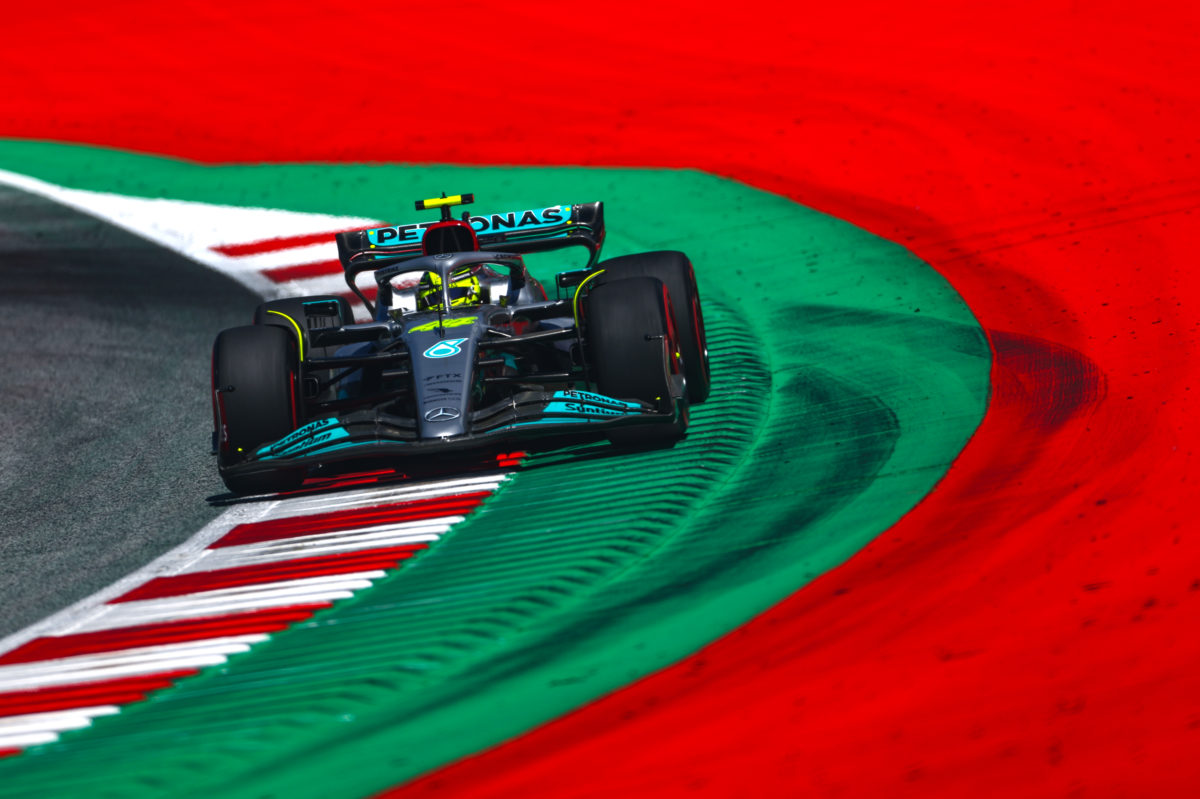

In the wake of Guenther Steiner’s reprimand from the FIA and the call for permanent stewards in F1, Speedcafe’s own F1 team of Mat Coch and Ian Parkes offer their opinion on the matter.
Steiner was reprimanded by the sport’s governing body for remarks he made in relation to an opening lap penalty dished out to Nico Hulkenberg in Monaco.
The Haas team boss spoke at length about the incident to the media ahead of the Spanish Grand Prix.
In response, Speedcafe’s editorial team, which was on the ground in Barcelona and present at Steiner’s media session, offers its insight.
The current situation
Currently, Formula 1 operates a rotating panel of volunteer stewards.
There is a select group of them who communicate regularly to ensure, as best they can, that they have the same knowledge and information on all incidents and decisions that happen during the course of the year.
Australian Garry Connelly is a member of that group, and attends somewhere in the region of half a dozen events a year.
At each event, there are four stewards, one of whom has racing experience.
Derek Warwick, Emanuelle Pirro, Tom Kristensen and others have all worked in that role, helping to bring a drivers’ perspective to matters.
That doesn’t always change the outcome but can add context that may be important.
The argument against permanent stewards – Mat Coch
Formula 1 already effectively has professional stewards.
The group from which they are drawn is comparatively small and those included have a deep understanding of motorsport and its administration.
If F1 were to employ permanent stewards, it’s likely they would come from this group.
But it’s not that they need four and it’s job done, there needs to be capacity for a steward to miss an event (we’re looking at 24 races next year), so perhaps a rotational system is needed.
However, even that seems unnecessary.
The fundamental question to ask is ‘would permanent stewards in F1 bring a notable increase in the quality of the decisions being made?’
There are two aspects to that; one is accepting that the current standard is not high enough, and secondly that a permanent panel could do better.
There is no clear answer to either of those questions, though it should be noted the sport moved away from permanent stewards due to concerns of perceived bias.
As far as the quality and consistency of decisions improving, that’s also up for debate, and evidence from other sports suggests it would not.
In football, referees make mistakes frequently.
Just recently Anthony Taylor, who refereed the UEFA Europa League final, was publicly abused by Jose Mourinho, manager of AS Roma, who lost to Sevilla on penalties.
He is a professional who made a contentious decision. It is no different to what happened in Monaco.
The simple fact is that in all sports, from amateur and grassroots to elite, there are contentious issues and the feeling that one is being hard done. It’s a universal constant.
The simple fact is the stewards have a rulebook they are charged with applying, there is little in the way of discretion and freedom – the F1 rulebook is comparatively mature and refined.
The difference as to whether it is a permanent steward or the system employed now seems to offer little tangible difference.
And so it raises the question, for the investment needed to employ a permanent panel of stewards, does it solve the problem? On the evidence available, you’d have to say ‘no’.
The argument for permanent stewards – Ian Parkes
It was a fair point raised by Guenther Steiner.
There was nothing malicious in his comments, and the fact he was reprimanded represented a degree of over-sensitivity on behalf of the FIA.
The only word out of place during Steiner’s lengthy criticism of the incident during the Monaco Grand Prix which prompted his frustration and subsequent call for professional officials was the use of the word ‘laymen’.
As Steiner declared at the time, “F1 is one of the biggest sports in the world and we still have laymen deciding”.
Without a doubt, F1 is one of the biggest sports in the world, and to that end, given how it has radically altered its image over the intervening years, it now ideally requires a professional body of officials to regulate each grand prix.
As Steiner rightly stated during his submission to the stewards in Spain, not for a second was he suggesting those who currently steward are unprofessional. Far from it.
Referring to them as laymen suggests, however, they are not experts in their field. As we know, they are, otherwise they would not be called upon to apply the FIA regulations at each race.
But we have now reached a point where there is too much inconsistency in the decisions being made.
How many times have we heard the drivers, in particular, and team principals on occasion, complain about the contrary application of the regulations when it comes to such matters, amongst other things, such as track limits and the awarding of penalties?
Steiner’s point about the penalty awarded to Nico Hulkenberg in Monaco was entirely valid. It was a first-lap incident, which is so often cited as a mitigating circumstance by the stewards for not applying a penalty, and there appears to have been very limited contact, if any at all.
Even the driver on the receiving end of Hulkenberg’s bold move into Mirabeau, Williams’ Alex Albon, felt the punishment was harsh.
The reason other sports employ a team of professional officials is to ensure the inconsistencies that are becoming far too commonplace in F1 these days are eradicated to a bare minimum.
Being human as we are, there is always going to be a decision, at any stage of a match or a race, that will annoy one party or another, or feel unjust. It is the nature of sport, and it is impossible to be perfect. Just ask Mourinho, as referred to by Mat above.
But at least with professional officials, there would be a high level of training, a constant review of incidents outside of grands prix to ensure rules are being consistently applied and the high standards the drivers and teams demand are being met.
You would also assume that a team of professional stewards would attend each and every grand prix to ensure those levels do not fall below what is required at all times.
The difficulty for the FIA is employing such a team to travel around the world and attend every race, but then that is why they would be professional, as opposed to the rotational system in place at present.
And as for the suggestion of potential bias with professional stewards, as was the case in the past, that is the stuff of nonsense in this day and age.
F1 has long moved on from when the acronym FIA was jokingly referred to as ‘Ferrari International Assistance’. This is no longer the era of the ‘garagistas’ and when Bernie Ecclestone ruled with an iron fist.
The spotlight is too fierce on F1 and the FIA these days for a potential team of professional stewards to be biased.
All in all, it is now time for F1 to join the ranks of other sports, and take on professional officials.





















Discussion about this post